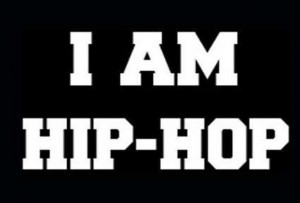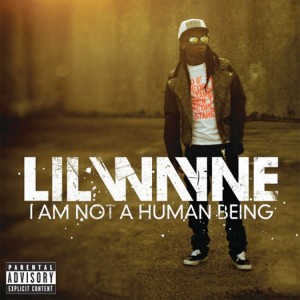 Yes. You read that right.
Yes. You read that right.
Hip hop music has been feared, blamed, and labeled as the cause of at least a dozen and a half of society’s ills. You can probably name some of them by heart – wanton hypersexuality without consequence, materialism and the ugly side of American consumptionism, senseless street violence, steering kids off of the path of legitimate careers, and the list goes on and on.
I’m not here to defend hip hop. I can probably name dozens of lyrics that I personally do not agree with. I can walk down the street and see tons of kids who identify with rappers more than any other figures in the public eye, and may very well be experiencing all kinds of adverse effects from it. What I am here to say is that, in an unpredicted way, hip hop led me directly to grad school.
Hip hop music was part of the background of my entire adolescence and adulthood. Yet somehow I managed to escape the world-ending cataclysm that people synonymize with the music. (There really DOES need to be a sarcasm font). What’s even more ironic to me is how broad of a cross-section of super smart and successful people I’ve met over the years who know and love and grew up steeped in hip hop culture. Yes, the very same music that society labels as ignorant, self-destructive, and with no redeeming value has also been influential in the lives of:
- Ivy League grads
- M.D.’s
- MBA grads
- J.D.’s
- Ph.D.s and Ph.D.’s to be
Now I would be misleading if I said that hip hop got all of these people into grad school too. Most likely, it didn’t. But it’s probably safe to say that they might have had similar thoughts as myself: How did the musical soundtrack of my life shape me into a Ph.D.? Meanwhile some kid that grew up in my neighborhood is sitting in jail and people shake their head and blame it on his steady diet of hip hop music?
These kinds of questions became really salient to me while completing an internship at an alternative school. While some kids play innocent childhood games, here I was with a group of young kids playing court. And I mean court as in “The defendent in this case is being charged with….” and “I sentence you to life in prison.”
This was in 2002. It was many years before Lil Wayne would rise to national prominence but somewhere in a small town in north Florida, these kids would hang off of his every single word. His definition of reality was adopted as theirs. The meaning they found in his words was the true definition of what it means to grown into manhood in their eyes. I really have to thank this experience for causing me to think critically about how the music is really affecting kids. How it affected me as I crossed over from adolescence to adulthood.
People love to philosophize about how the media affects young people. They have heated conversations around a dinner table or on message boards across the Internet. It is human nature to come up with your own theory to make sense out of your everyday experiences. But at the end of the day, its all just someone’s opinion. My twenty-two year old self wanted answers. And not those that the Old Folks used to spit out when talking about “these kids nowadays.”
If this whole thing wasn’t as simple as “music in-ideas out” (and I knew it wasn’t I can probably readily quote a full 90% of the lyrics that people throw out as the singlemost direct cause of the downfall of society), then I wanted to know all of the ins and outs of the issue at the hand. I wanted answers to the question of how hip hop can be the music of choice for kids who would someday grow up to become Supreme Court Justices as well as those who would become the real-life defendants in the Court that those kids I worked with were already all-too-familiar with.
For Black and Brown kids (like those role playing being sentenced for life in jail), I found out there just weren’t a lot of answers. Just facts and figures and data that showed that kids like me grew up watching a whole hell of a lot of more TV than White kids. What kind of effect was ALL this media consumption having? Was there different effects from listening to steady diet of Lil’ Wayne versus Kanye West? When I went on a mini-research expedition, I was almost floored to find out there weren’t many conclusions. Either because much research hadn’t been really done or hadn’t been published.
Picture me silently screaming in my head: Are you kidding me?! So we forecast all this doom and gloom about how Black and Brown kids are watching enough TV and listening to enough music and watching enough music videos as some people spend working in full-time jobs, and of course, it must be having a negative effect, but we never look into exactly what kind of effect it is having?
*insert smirk here*
But also insert opportunity here.
Opportunity to write a really kick ass personal statement that shows, without a shadow of a doubt, why more work needed to be done and backed with more intellectual study and why I was *just* the perfect person to do it. And the sweetest part of this whole thing? The admissions committee agreed with me – I did belong in grad school. Not next year. Not two years from now. But right now.
Hip hop got me into graduate school by giving me a compelling reason to go in the first place.
There are as many motivations to apply to grad school as there are applicants. No doubt, the majority of grad school hopefuls will get turned away. Will you be one of them? Grades and test scores alone won’t get you in. Will YOUR compelling reason be outstanding enough to earn an acceptance letter?
